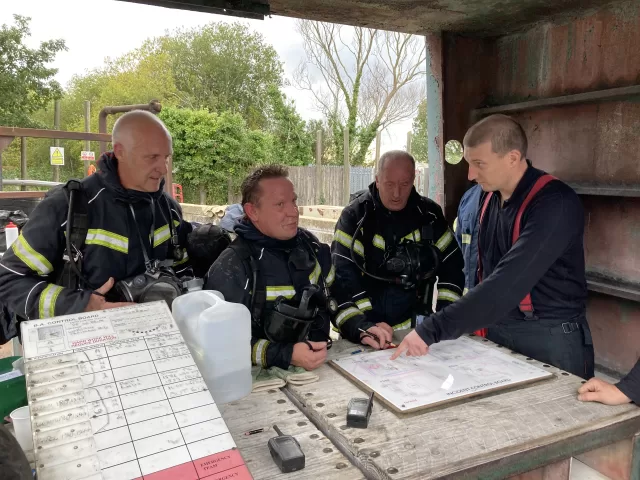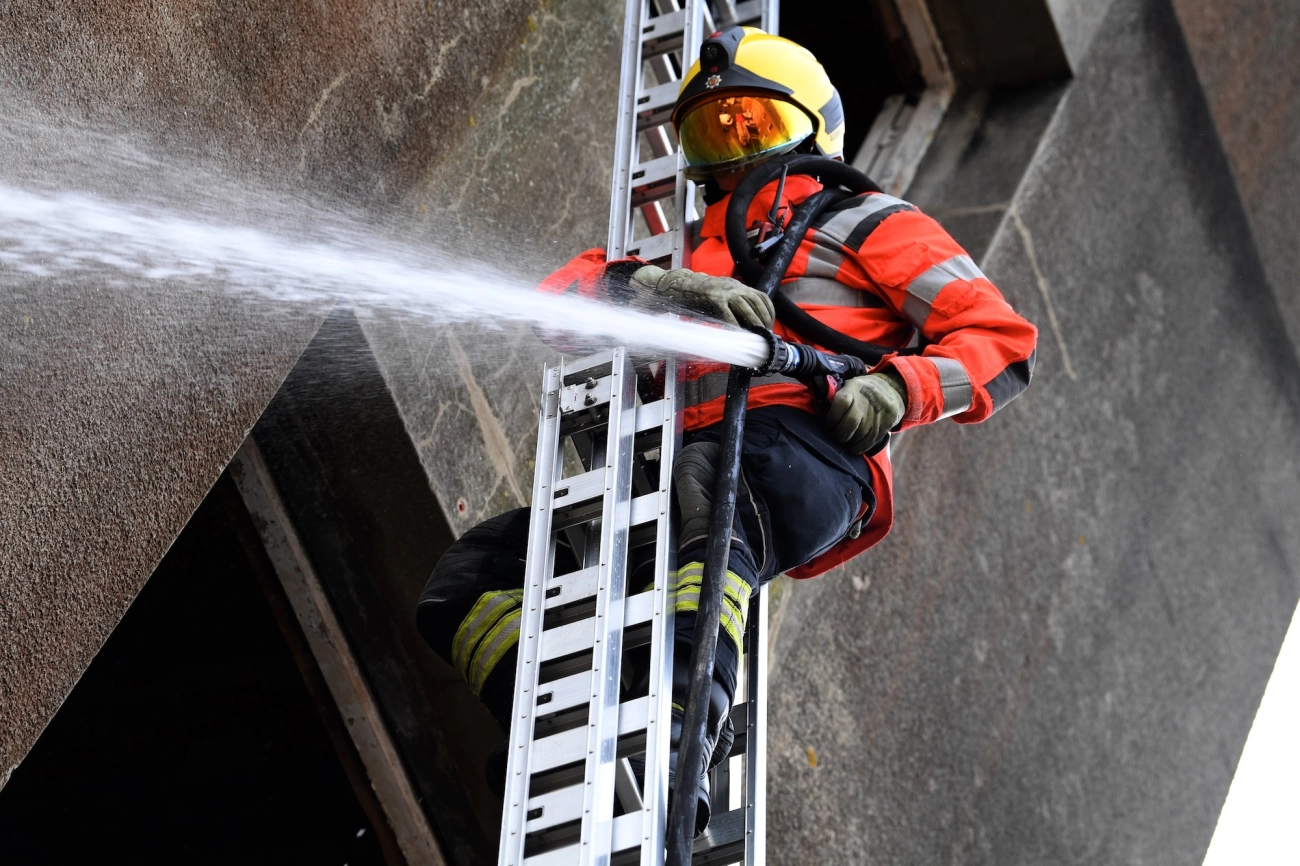In the event of an emergency call 999

Training
Training
Whether it in the yard at Fire HQ, in locations around the island, or on the sea, whenever our firefighters are not responding to incidents, they are training. All subjects, whether it’s using breathing apparatus, Road Traffic Collision drills or using the aerial ladder platform are subject to annual refresher courses and requalification.
Our fleet includes a wide range of vehicles – and we need to make sure our crews can operate them safely. HGV or LGV licensing, emergency response driving and yachting qualifications are all a part of the job.
Medical support is a huge part of what we do, so we are highly trained in First Responder Emergency Care. If firefighters arrive on a scene first, or if a casualty in in a position where ambulance crews cannot reach them, then we will provide that initial care.
Our firefighters are supported internally to become to best they can be. We encourage our crews to develop their knowledge in health and safety and in fire engineering. We also help develop the skills required to progress into command roles. Our leadership programmes follow the NFCC framework, which standardises the approaches across the Fire and Rescue sector.
Off-island
Occasionally we will travel to the UK to complete necessary training, using facilities we don’t have locally.
Our new wholetime recruits travel to Fire and Rescue services in the UK to undertake their initial training.
Once every two years, the National Fire Chiefs Council recommend we train in live fire environments, and we will visit our counterparts in Hampshire Fire & Rescue Service to do that.
We also train in marine response with our colleagues in Warsash, Hampshire. This covers ship firefighting, sea survival and helicopter underwater escape training.
Courses where our crews learn to become instructors or fire investigators are also integral to our development. These are also conducted off-Island.
Incident Command
Operational response to incidents is hazardous and varied. Some incidents need only simple actions and procedures to be dealt with effectively and safely, as risks are low. Others are more challenging and may quickly increase in size, complexity and duration.
We ensure our incident commanders are appropriately trained, assessed and revalidated, to ensure they understand, have practised and revalidate the skills they need for command.
Locally, our firefighters can complete their Fit to Command course, which is a gateway to becoming a Crew Commander. Once they are competent, they can then undertake further assessments to move up to the rank of Watch Commander.
Our Fleet
Our wide range of specialist firefighting and rescue vehicles and supporting kit means we are ready to respond, whatever the emergency.
What we do
On an Island, we aren't able to call on other Fire and Rescue Services to attend incidents, so we must become experts in all areas.
On-Call
Our wholetime crews are backed up by our on-call firefighters. These part-time Watches based at both our Western and St Helier stations.
Our partners
To ensure we can help make Jersey's community as safe as possible, our work is supported by many services, organisations and charities.

All rights reserved 2026 | Privacy Policy
Site by iPOP